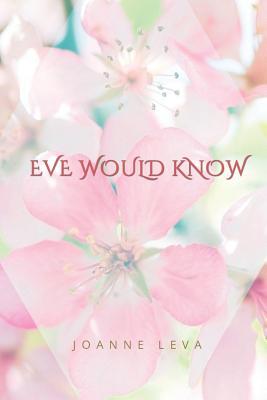J.C.Todd, author of What Space This Body
Joanne Leva's Eve Would Know is a fearless book that gives an entirely fresh look at the story of Eden. We have Eve in the Green Room, Adam agreeing to a body double, Eve munching on turnips and dry biscuits, Adam suffering from hemorrhoids, Adam ordering a bottle of Pinot Grigio, Eve rolling cigarettes. In this delightfully invigorating embrace of anachronisms, Leva reminds us that this first fall from grace is repeated in our own lives. The final poem in the book is appropriately titled "Pulling for the Heroine," and we do pull for Eve, but not just for her. This brave and intelligent book helps us to understand our own losses of innocence, the compromises we make to bear these losses, and, most importantly the triumph of the human spirit in surviving expulsion from the garden. John Milton and Joanne Leva may seem odd traveling companions, but they journey down the same road and they give us the courage to go with them as together we face this fallen world we have inherited. If language is a by-product of this Fall, it is a glorious one. This is a glorious book.
Christopher Bursk, author of The Improbable Swervings of Atoms
Joanne Leva's Eve Would Know recreates the whole history of female desire-from abject subjugation to survival, from the ugliness of cruelty to protection, independence, and grace. Encouraging us to cast off "chifforobe/ high heels/ or negligee," Leva instructs us to instead "transform...into a cluster of exotic blossoms," setting ourselves free from all that binds us, confines us, and hems us in. Much like Anne Sexton's, Joanne Leva's poems spring to life out of a palpable darkness, embracing the power of the imagination to "whirl" us into a brilliant future.
Ethel Rackin, author of The Forever Notes and Go On
